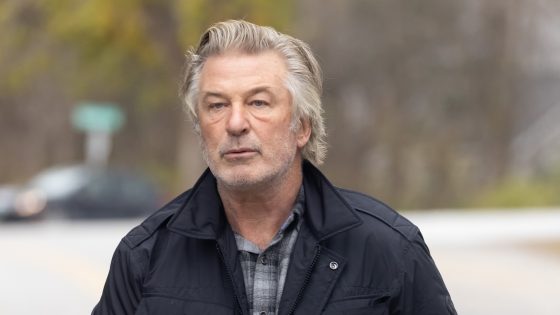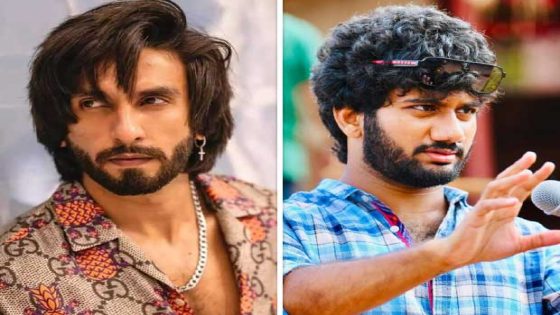A New Mexico judge will rule next week on whether to dismiss Alec Baldwin’s involuntary manslaughter charge stemming from the 2021 fatal shooting on the set of “Rust,” following an hourslong hearing on Friday.
The actor was practicing a cross-draw in a church on the set of the Western film when the Colt .45 revolver fired a live round, fatally striking 42-year-old cinematographer Halyna Hutchins.
Baldwin, 66, who was also a producer on the film, was indicted by a grand jury on involuntary manslaughter in connection with Hutchins’ death earlier this year, after prosecutors previously dropped the charge. He has pleaded not guilty and his trial is scheduled to start in July.
Alec Baldwin speaks for the first time regarding the accidental shooting that killed cinematographer Halyna Hutchins, and wounded director Joel Souza on the set of the film “Rust”, Oct. 30, 2021, in Manchester, Vt.
Mega/GC Images/Getty Images
A remote hearing on the defense’s motion to dismiss the indictment was held Friday before Judge Mary Marlowe Sommer, who said she will issue her ruling by order next week following at-times heated presentations by the state and defense.
Baldwin’s attorney, Alex Spiro, argued that the prosecution engaged in “bad faith” in securing an indictment in the “high-pressure case” by failing to provide the grand jury with sufficient information or have defense witnesses available to testify.
“It should be dismissed for Mr. Baldwin, or any other person that comes before the grand jury and falls victim of an overzealous prosecutor,” Spiro said.
They argued that a witness gave inconsistent testimony regarding whether actors are responsible for gun safety on set before the grand jury and, weeks later, during the trial for the film’s armorer, Hannah Gutierrez, who was convicted of involuntary manslaughter in connection with the October 2021 shooting.
“We do not think, as an officer of the court, a lawyer should be able to argue one theory to the grand jury and then, in a related case, turn around and argue an opposite theory to obtain a guilty verdict,” Baldwin’s attorney, Luke Nikas, told the judge.
Among other challenges, they argued the grand jury proceedings were “highly prejudicial” and violated secrecy rules, pointing to media coverage of the initial grand jury date that was published before the proceedings.
Prosecutor Kari Morrissey told the judge there was no evidence that a “fix was in” or anything “nefarious” on the part of the prosecution occurred regarding the grand jury proceedings.
“I didn’t hide any information from the grand jury,” she said. “My intention, since we’re talking about bad faith, was to ensure that the grand jury got information that was accurate and reliable.”
Morrissey countered that the state is not required to call the defense’s witnesses or “present the testimony that they wanted us to present” in grand jury proceedings. She detailed how she planned to present several defense witnesses should the grand jury have requested their testimony, and said she believed that the grand jurors understood they could ask to hear from any of them.
She pushed back against the defense’s claim that the witness’ testimony on gun safety was contradictory, saying that the testimony in the grand jury was that the actor is responsible for the firearm once it is in his hand.
“That is absolutely accurate,” Morrissey said, adding that safety protocols on set say the person who’s holding the gun isn’t supposed to point it at anyone, should keep their finger off the trigger and know what their intended target is.
“All of those are things that Mr. Baldwin failed to do, and that information was appropriately presented to the grand jury,” she said.
She also pushed back against complaints over the grand jury date being made public, saying she did give The New York Times the initial date of the grand jury proceedings but didn’t release the rescheduled date.
“A bunch of people who are not required to keep it secret get the date,” Morrissey said.
The 2 1/2-hour hearing turned heated near the end, when Spiro implied that Morrissey had not contacted certain defense witnesses, including “Rust” first assistant director David Halls, like she said she had ahead of the grand jury proceedings.
“The story doesn’t work,” he said. “It’s a homicide case, prosecutors are required to do better than this.”
Morrissey responded that the defense was misrepresenting her words and that she never said she had contacted Halls.
“I’m not going to sit here and be called a liar,” she said. “Mr. Spiro is intentionally trying to misrepresent and mislead this court right now.”

Photos of cinematographer Halyna Hutchins are displayed before a vigil held to honor her, Oct. 23, 2021, in Albuquerque, N.M
Sam Wasson/Getty Images
Baldwin’s attorneys filed the motion in March, two months after he was indicted by a grand jury.
In the defense’s filing, his attorneys accused prosecutors of “unethical disparagement” of Baldwin and of “violating nearly every rule in the book” to secure a grand jury indictment.
“The State did not make Baldwin’s witnesses available to testify. Nor did it present the exculpatory and favorable evidence to the grand jury,” the motion to dismiss stated.
“The State prosecutors have engaged in this misconduct — and publicly dragged Baldwin through the cesspool created by their improprieties — without any regard for the fact that serious criminal charges have been hanging over his head for two and a half years. Enough is enough,” the motion, filed in March, stated.
In a response filed in April, prosecutors claimed Baldwin missed concerns about the film’s armorer and “compromised safety” on the set by demanding the crew and Gutierrez work faster.
“The combination of Hannah Gutierrez’s negligence and inexperience and Alec Baldwin’s complete lack of concern for the safety of those around him would prove deadly for Halyna Hutchins,” prosecutors stated.
Gutierrez, 27, was found guilty of involuntary manslaughter and sentenced in April to 18 months in prison, the maximum in the shooting.
She appealed her conviction earlier this week.
ABC News’ Aaron Katersky contributed to this report.
Source Agencies



